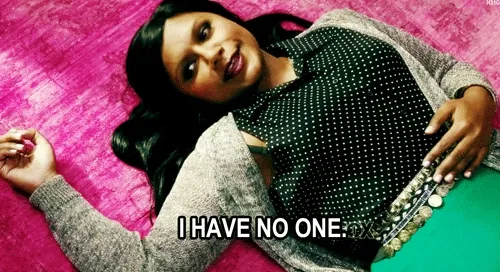Most workers don’t have a best friend at work
HR can help facilitate a culture where friendships thrive.

The Mindy Project/Fox via Giphy
• less than 3 min read
Kristen Parisi is a senior reporter for HR Brew covering DEI.
Not everyone can have a timeless work friendship like Meredith Grey and Cristina Yang—and according to new research, that dream is becoming less and less of a reality. HR Brew explored HR’s role in facilitating new friendships between employees.
I definitely (don’t) have friends. If HR leaders are noticing that employees don’t seem to be connecting as much, it’s not in their heads. Just two out of 10 workers say they have a “best friend” at work, according to a Gallup poll released in August. Remote work likely plays a role in the low number, as experts indicated the pandemic took a toll on the natural relationships employees typically develop in the office.
While work might not seem like the appropriate venue for employees to commiserate over personal problems for some, researchers say that workplace friendships are important for retention. Those with a work bestie, “were much less likely to leave their job for another one because they had a friend at work,” Robert Waldinger, psychiatry professor at Harvard Medical School recently told NPR.
Meisha-ann Martin, senior director of people analytics and research at Workhuman, told HR Brew that friendship goes beyond retention, into engagement and talent acquisition. “People are more likely to recommend their organizations to others when they have a best friend at work and are connected to people at work,” she said.
How HR can help. Martin said that HR plays a valuable role in facilitating workplace friendships. She said it ultimately starts at the macro level, building a safe culture where people feel like they bring their whole selves to work and show vulnerability, causing relationships to naturally form.
In a more dispersed workplace, Martin said that leaders should model friendly behavior and casual interactions to more junior staff. She recommends HR leaders run psychological training for senior leadership that shows leaders how to be vulnerable and exhibit the preferred behavior for other staff. “The other thing that HR can do for leaders is letting them know that [the company is] aiming for an environment where people are friends,” she explained.
Whether an employee crying about the copier eating their presentation, or mourning McDreamy’s death, a friendship can just make the day brighter. — KP
Quick-to-read HR news & insights
From recruiting and retention to company culture and the latest in HR tech, HR Brew delivers up-to-date industry news and tips to help HR pros stay nimble in today’s fast-changing business environment.
Quick-to-read HR news & insights
From recruiting and retention to company culture and the latest in HR tech, HR Brew delivers up-to-date industry news and tips to help HR pros stay nimble in today’s fast-changing business environment.